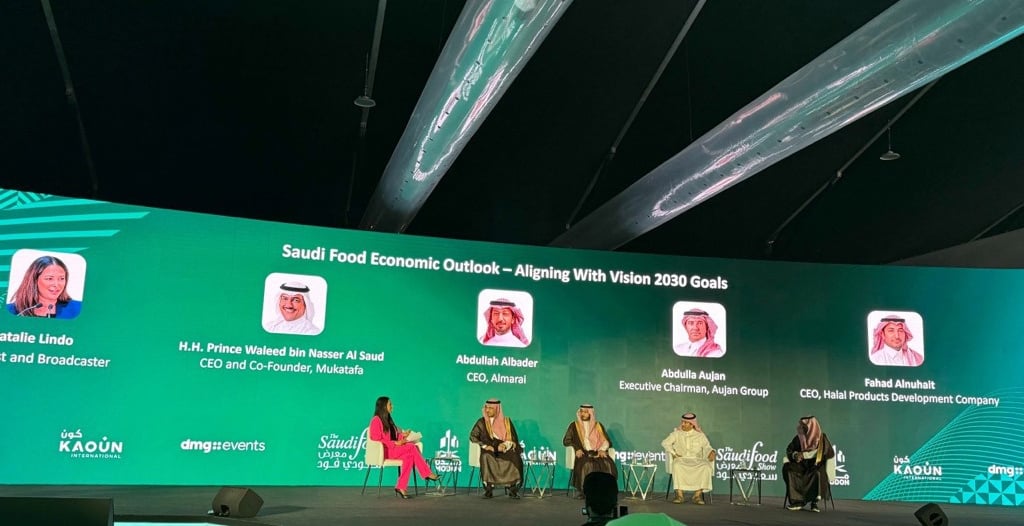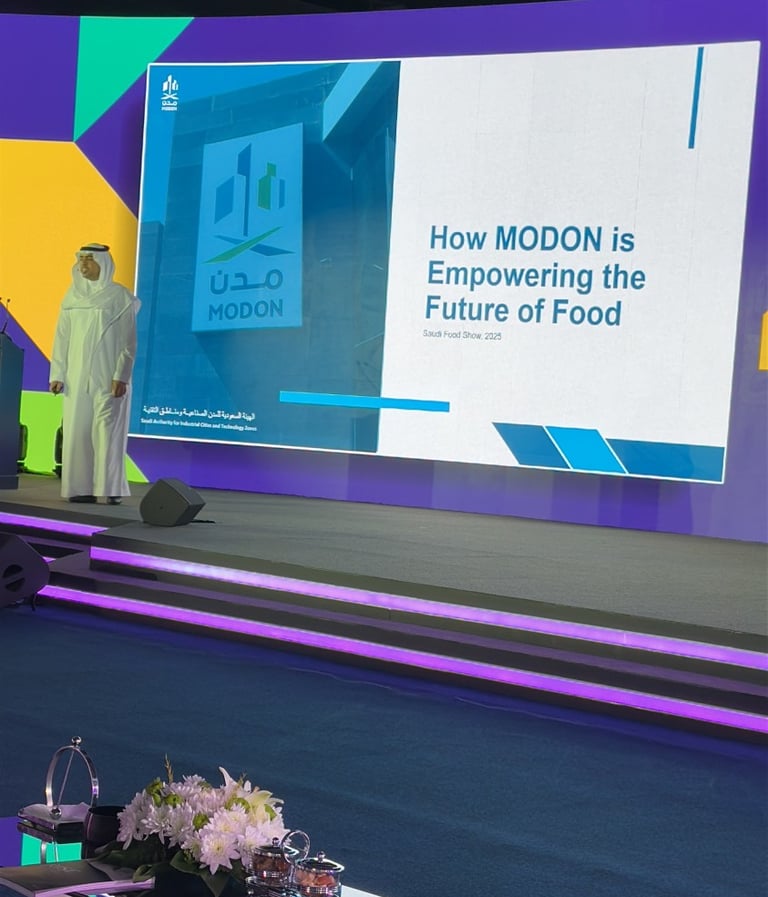From Import Reliance to Global Powerhouse: The Kingdom’s Food Manufacturing Revolution.
Saudi Food Summit | Riyadh- Saudi Arabia | May 2025
Valerie Zakka
6/9/20254 min read


Saudi Arabia’s food sector is entering a transformative phase driven by Vision 2030 — with a focus on local manufacturing, food security, traceability, and global expansion.
The 2025 Saudi Food Summit which took place during the The Saudi Food Show - The Kingdom’s Largest F&B Sourcing Event in May under the patronage of H.E. Bandar Ibrahim AlKhorayef, Minister of Industry & Mineral Resources and Chairman of the Board of MODON, gathered industry leaders and policymakers to outline the next steps for aligning private sector growth with national objectives.
Local Food Manufacturing: From Policy to Practice
Local Food Manufacturing emerged as a key pillar of Vision 2030. Saudi Arabia’s competitive edge in Halal production and higher food safety standards positions it well for regional leadership.
However, many government programs remain underutilized due to lack of awareness by the private sector or complex access processes.
The funds and incentives exist, H.H. Prince Waleed bin Nasser Al-Saud noted, but the private sector must engage more actively and help shape future programs. There is a clear, strong call for collaboration for public-private partnership.
“The private sector is now mature enough to provide recommendations to the public sector about what systems or funding or stimuli they wish to have”.
Food Security & Self-Sufficiency as Strategic Priorities
As there is heavy reliance on importing, the government is working hard to ensure the availability of essential food products in the country and is inviting the private sector to unite the industry under one voice.
According to Mr. Abdullah Albader- CEO of Al Maraee, food security is not just an outcome—it’s a daily responsibility.
“Our prime objective is to ensure that the consumers and markets we serve every day have fresh products of the highest quality at the best prices in the nearest outlets for sale. If we deliver on this every day, we will have reasonably done our job, and it should be a sustainable operation to ensure this satisfies the requirements of the Vision”.
Driving food security will also be achieved through integrated supply chains, developing proper cold chains and distribution routes.
The importance of vertical integration in securing national food supply was highlighted, with significant investments being made across feed sourcing, new manufacturing plants by most big players, cold storage, and distribution channel organizations, helping to stabilize the supply chain from farm to consumer.
Food Traceability is Mission-Critical
H.H. Prince Waleed bin Nasser Al-Saud emphasized that traceability is foundational to the future of Saudi Arabia’s food economy. In a country heavily reliant on imports, real-time inventory tracking and rapid response mechanisms are critical—especially in emergencies such as product recalls or contamination events.
Current challenge: government-led traceability systems are advancing, but the private sector’s participation is lacking due to fragmentation. Executive action is needed, calling on industry leaders and the private sector to organize and align to co-develop traceability solutions that balance cost-efficiency and regulatory compliance.
“The public sector is building systems, but the private sector must step up, organize, and take ownership”.
Global Expansion & the Halal Value Chain
As highlighted, a key competitive advantage of Saudi Arabia’s manufacturing sector is its strong Halal brand.
Mr. Fahad Alnuhait, CFA , CEO of the Halal Products Development Company, a PIF company (Public Investment Fund), outlined their holistic strategy based on providing capital, strategic expertise and partnerships with global and local players in order to localize Halal food manufacturing in the Kingdom.
HPDC aims to reduce import dependency, increase exports while generating jobs for the Saudi youth.
Investing in new categories will be crucial for global expansion, and to that effect, Almaraee's strategy includes a SAR 18 billion investment plan to increase their core portfolio of products which will further solidify food security, get into adjacent categories thus decreasing reliance on imports, and expand globally, growing their existing export markets and reaching new ones.
This expansion reflects the broader national goal to build globally-competitive food exports, through growth & diversification.
Mr. Abdulla Aujan, Executive Chairman of Aujan Group, expressed pride in the company's alignment with Saudi Arabia’s Vision 2030. He highlighted the strategic importance of their Dammam facility, emphasizing its role in pioneering local manufacturing within the country. He also highlighted the impressive export volumes achieved, reflecting the group’s commitment to contributing to the nation’s economic diversification and industrial growth.
Among the barriers to growth discussed, logistics and shipment cost inefficiencies were identified—especially around export shipping routes. One of the government’s goals is to make the Kingdom’s Western region a strategic hub for African trade, reducing reliance on ports like Jebel Ali and other regional ports.
Looking ahead: opportunities and challenges
The summit made it clear: the future of Saudi Arabia’s food industry lies in public-private collaboration, smart manufacturing investments, and strong global positioning. The government is clearly aiming not only at self-sufficiency, but at becoming a center for regional food production.
With the right alignment, the Kingdom is poised to become a regional leader in food production, innovation, and halal exports—turning Vision 2030 from ambition into action.
Key take-aways:
-Self-sufficiency: local raw materials manufacturing, to move from a transformation industry into a productive one.
-Digital transformation and Traceability for the food industry: needed to scale-up and grow as a regional food & beverage manufacturing hub.
-Efficient resources management: investing in manufacturing technologies, smart irrigation, smart agriculture.
-Value chain development and Valorization: increase value chain competitiveness to develop new products and valorize production waste.
-Clustering, for which a blueprint is being shaped, lead by fabulous projects like the MODON Industrial Zone. As presented by Mr. Naif Alduraywish , Partnerships and Products Director General, industrial clusters like MODON are Powering the Future of Food in Saudi Arbia.
Stay tuned for more on MODON and future outlooks in my next Blog!
Found this interesting ? Share it with your network.
Want to discuss further? Let’s connect! valerie.zakka@theindustrialkingdom.com


CONTACT


The Industrial Kingdom
Berytech bldg., Mar Roukoz, LEBANON
Mobile: +961.3.621813
hello@theindustrialkingdom.com
ADDRESS
2026, The Industrial Kingdom Consulting Services
Phone: +961.4.533040 ext. 2426
©
valerie.zakka@theindustrialkingdom.com
